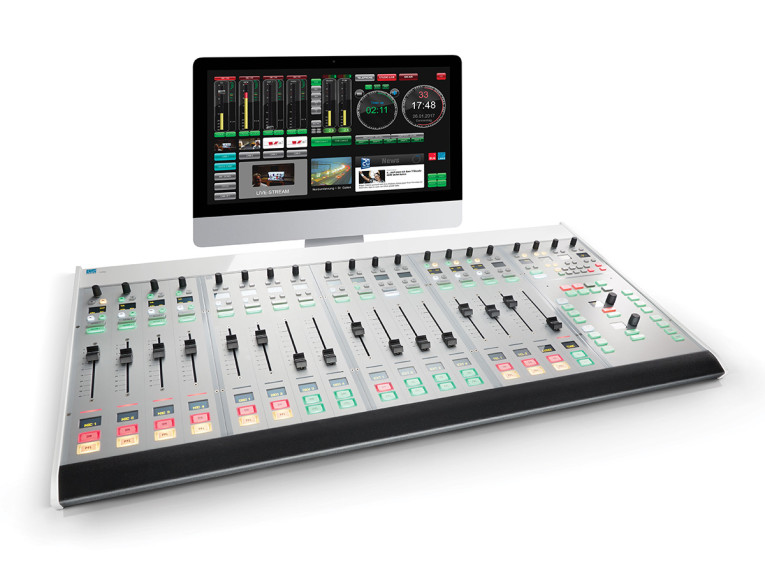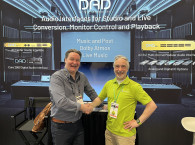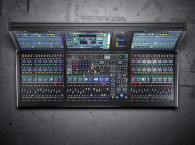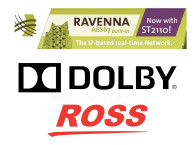
Why should radio engineers be interested in a standard developed for television transmission? Because radio increasingly relies on audio-over-IP (AoIP) studio systems, and SMPTE 2022 defines ways for IP networks to cope with the unexpected, ensuring delivery of critical real-time digital audio.
“Radio requires reliability,” says Michael “Catfish” Dosch, Senior Product Manager, Radio OnAir. “AoIP has revolutionized radio, making network reliability a key success factor. If the network fails, you’re out of business. That’s why Lawo is taking the lead, implementing the SMPTE 2022-7 standard for Seamless Protection Switching (SPS) into its family of radio mixing consoles, as it has already done for its mc² production consoles.”
SPS (also known as “hitless merge”) enables AoIP simultaneous transmission of dual, identical audio streams via independent network paths, providing instant, undetectable switching to backup should the primary link be interrupted.
“Television broadcasters have been pushing hard for network redundancy, and the SMPTE standard provides an excellent solution,” says Dosch. “But redundant networking isn’t useful only for TV; it’s crucial for radio broadcasters, too. Network reliability is job one for live radio — so we’ve added Seamless Protection Switching to our consoles to help ensure that unexpected network problems don’t result in dead air.”
Lawo's Ruby and Power Core are the world’s first radio consoles to incorporate SMPTE 2022-7 as a standard feature, beginning with Radio Software v6.0. In addition to SPS for Ruby and Power Core, the Radio v6.0 update includes a number of user interface and feature enhancements for all Lawo radio products, including mixing consoles, VisTool GUI Builder software, and Lawo’s OnAir Designer console customization tool. Users can download the software by visiting www.lawo.com, and clicking the “Downloads” link.
Apart from hardware consoles, Lawo is pioneering the concept of Virtual Radio with its RƎLAY mixing software running on standard PC workstations that are connected to the network, giving each workstation’s RƎLAY mixer instant access to audio from network-attached devices such as playout computers, codecs and VoIP servers, as well as audio from local sources.

The software allows any workstation to be configured to any type of workflow, greatly enhancing operational efficiency, since any producer or presenter can build content – interviews, news pieces or editorials – at a moment’s notice, using any available computer. The RƎLAY radio software enables broadcasters to build “virtual broadcast studios,” and includes VRX8 8-fader and VRX4 4-fader Virtual Radio Mixer, VPB Virtual Patch Bay, and VSC Virtual Sound Card software. All are AES67 / RAVENNA compliant, and multi-touch capable for easy, intuitive use on touchscreen PCs and laptops. RƎLAY can mix all types of native PC audio using included ASIO, WDM, WASAPI and MME drivers, as well as AES67 / RAVENNA streams.
Nearly 500 broadcasters are already using RƎLAY software since the solution debuted in 2016.
www.lawo.com | www.r3lay.com






